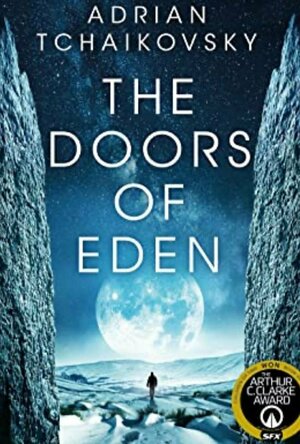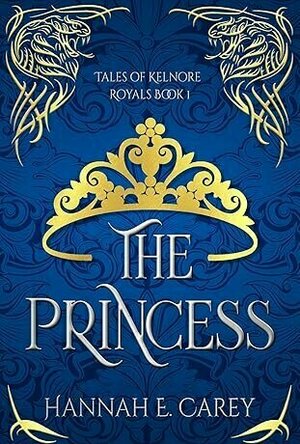
Dr. Panda Racers
Education and Games
App
STEP ON THE GAS, RACE AND WIN! Fasten your seat belts and get ready to race! Speed your way to the...

Dr. Panda School
Education and Games
App
Are you ready for class? CREATE YOUR OWN STORIES! Let your imagination run wild in Dr. Panda...

Currency Converter Plus
Finance and Travel
App
*** Currency Converter Plus has now been downloaded more than 1 000 000 times. We are getting great...
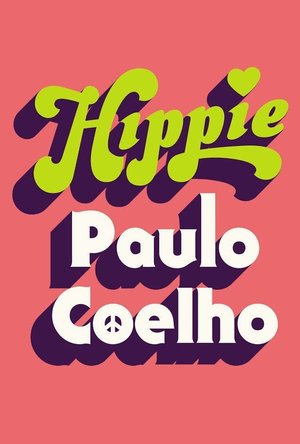
Hippie
Book
In Hippie, his most autobiographical novel to date, Paulo Coelho takes us back in time to re-live...
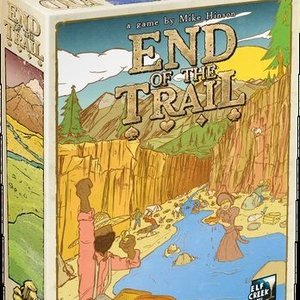
End of the Trail
Tabletop Game
End of the Trail is a competitive card game for 1-4 prospectors and fortune seekers. Players manage...
BoardGames 2018Games WildWestGames
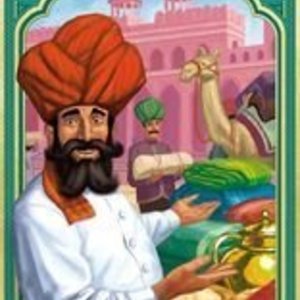
Jaipur
Tabletop Game
Jaipur, capital of Rajasthan. You are one of the two most powerful traders in the city. But...
Boardgames Cardgames FamilyGames

Ryker (Owatonna U Hockey #1)
RJ Scott and V.L. Locey
Book
This New Adult book is the first in the Owatonna U Series, a spin off from the best selling...
ClareR (6037 KP) rated The Doors of Eden in Books
Feb 28, 2022
When Lee and Mal fall through a crack between worlds, we begin to see that there isn’t just one Earth, and they’re not all as ‘civilised’ as the one we inhabit. Lee manages to make it back to our Earth, Mal doesn’t.
Kay Amal Khan is attacked, and Julian Sabreur from MI5 is tasked with investigating. He sees some security camera footage that shows Mal - who is still missing, presumed dead - with a frankly enormous man, leaving Khan’s flat, with the men who were going to hurt him and/ or kidnap him (who knows) badly injured or dead.
Were any or all of these people after Khan’s research? Because the research seems to be proving that there are countless parallel Earths, and the walls between them are coming down - with no good end in sight.
I thoroughly enjoyed listening to this: creatures from different Earths, all with different values and wished. I mean, who’s to say that this couldn’t really happen (err… lots of scientists?)? It’s all so credibly written. And the interludes between chapters from another book:”Other Edens: Speculative Evolution and Intelligence” by Professor Ruth Emerson explains how these Earths evolved. It gives an explanation of the many characters from the different Earths.
There’s just so much interesting detail in this book. I finished it feeling that I really knew the characters, and that I had an understanding of these other Earths. I had to remind myself that they weren’t real (they’re not real, are they?).
This was an exciting, complex, just really interesting sci-fi adventure, and I took the dog for extra long walks, just so that I could keep listening (well, she was happy!). This isn’t my first Adrian Tchaikovsky book, and I’ll be reading/ listening to more - I haven’t been disappointed yet!
Merissa (13568 KP) rated The Princess: Tales of Kelnore (Royals #1) in Books
Jan 17, 2025
Told from multiple perspectives, we focus on Aurelia, Luca, Dimitri, and Fabian. Each of them has a story to tell and secrets to keep, it's just some are clearer than others at this moment. There are so many wars going on in this book, whether it's against raiders, magic, themselves, or even husbands. Every part was brilliantly written and left me not wanting it to end.
Poor Aurelia! How dare she ask questions or have an opinion, let alone eat a full portion. Yeesh, I really dislike Kelnore and their way of thinking. #SorryNotSorry. Fabian is the heir to the empire, knowing his duty is to do what his father tells him, including who he will marry. Dimitri is Aurelia's twin brother who is a little more lenient with her but doesn't fully understand her. Luca is a Captain under Dimitri's command. Dimitri has taken him under his wing, even though Luca has a secret that could get him executed if found out.
I love this world that Ms Carey has written. I will be honest and say I prefer the values of Pern Coen, but that just makes this story so much more interesting. To be able to compare one land with another while being completely engrossed in the personal lives of the characters is wonderful. I could waffle on longer as there are many things I haven't touched upon, but instead, I will simply say this is an outstanding book that I was completely hooked on and HIGHLY RECOMMEND.
** same worded review will appear elsewhere **
* A copy of this book was provided to me with no requirements for a review. I voluntarily read this book; the comments here are my honest opinion. *
Merissa
Archaeolibrarian - I Dig Good Books!
Jan 12, 2025
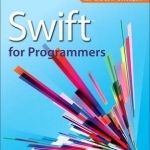
Swift for Programmers
Harvey Deitel and Paul J. Deitel
Book
The professional programmer's Deitel(R) guide to Apple's new Swift programming language for the...
